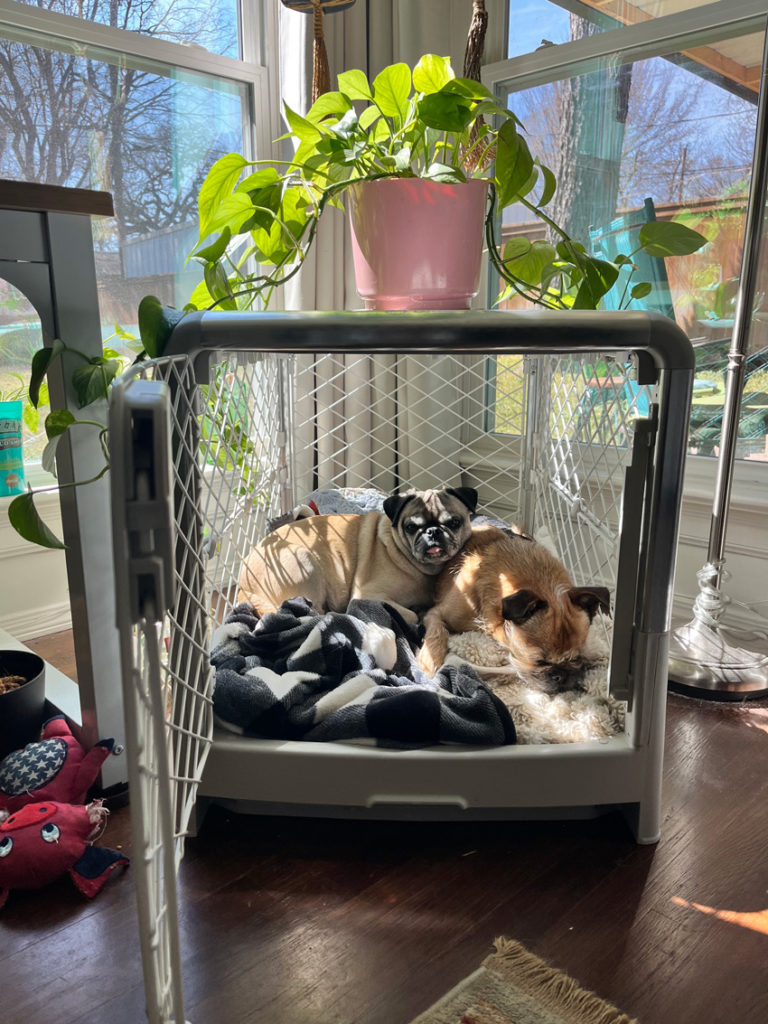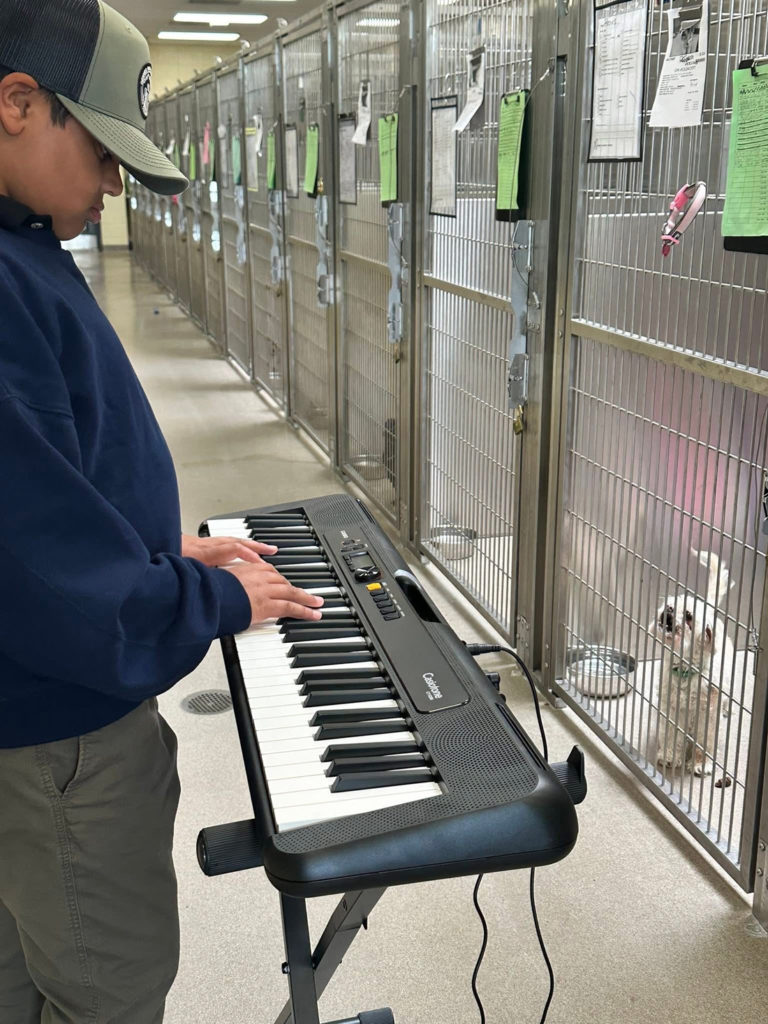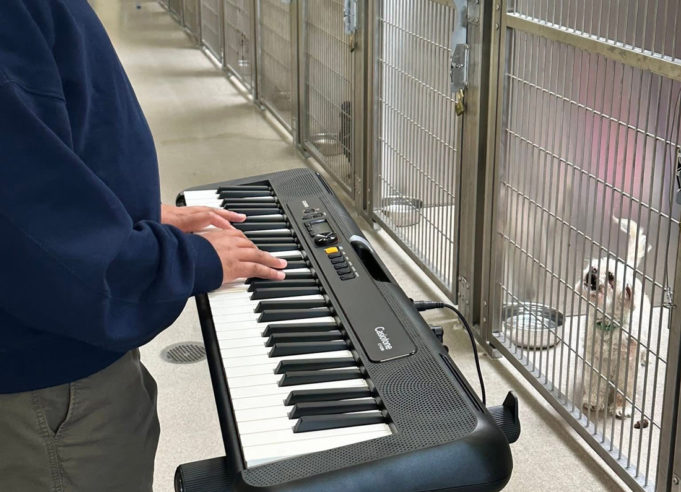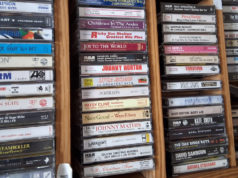As near as I can tell, my two dogs — a pug named Weedol and a pug-mix named John, both of whom my girlfriend and I adopted from DFW Pug Rescue — are indifferent to recorded music. Maybe they would perk up if a recorded song contained a doorbell sound or the pinging rattle of kibbles scooped into a bowl, but otherwise, any music I’ve ever played in their vicinity has been met with literal yawns. Even Pink Floyd’s “Seamus,” which features the howling of the song’s titular canine, barely moves their meter, and never have either of them left their bed in the kitchen to hear what is on the turntable in the living room.
That’s not the case when I’m playing bass. My practice zone is in my office, which is also where the pugs sleep at night, and any time I plug in and play a note, they both come trotting in and settle into their kennel so as not to miss a single second of me fumbling my way through cheated, half-ass versions of “Longview” and “Journey to the End.” I always wonder why that is. I doubt it’s the performance that draws them and soothes them, but perhaps it’s the low frequencies? Unless they’re snoozing, they’re both more or less Velcro’d to us, and I know that’s probably also why they hang out when I’m in the office doing anything. They get pretty bored when I’m in here typing and usually return to whatever cushiony spot they came from. So, I’m erring on the side that they actually like live music and don’t care that I can’t play like Mike Dirnt or Matt Freeman. Do dogs like music? Sure! Why not? Even when it’s played poorly!

Photo by Steve Steward
Whether your animal companions are furry, feathered, or are the kind that live in a tank of some sort, you probably have an anecdote about their reactions to music and have made your own assumptions about how those creatures relate to it. A couple years ago, a now-12-year-old kid in Houston named Yuvi Agarwal noticed how Bozo, his family’s golden doodle, calmed down whenever he played his keyboard. Yuvi, who has played piano since he was 4, did some research and learned that music can reduce stress hormones in animals, allowing them to chill out and connect with humans more easily. It occurred to him that music would be beneficial to homeless animals in shelters, and soon after, he and his parents launched Wild Tunes, a nonprofit that pairs volunteer musicians with shelters looking to ease the experience of their animals.
Thus far, Wild Tunes has coordinated with shelters here in Texas — Houston, Fort Bend, and Kerrville, to name a few, with Fort Worth as a potential future site — as well as in Denver and San Diego. The musicians range in age and experience from middle-schoolers like Yuvi on up to seasoned professionals like Houston-based songwriter Bo Bottoms and flautist Sarah McDonner, who is the executive director and founder of the Energy Corridor of the Houston Orchestra. Aspiring volunteers can apply at WildTunes.org, as can any shelter looking to partner with the program. The site requests that volunteers play their favorite “soft instrument” (percussion is not allowed), and after they complete the partnering shelter’s volunteer training, Wild Tunes encourages its volunteers to play once a month — as the pets do better with consistency, the program works best when there is a regular rotation of musicians at regular times.
While the dogs and cats housed in participating shelters get to de-stress for the hour a local cellist or whomever plays for them, imagine what the experience does for the person playing. I know how it feels to see Weedol hear me play bass, drop her chin between her paws, and drift off into soft, snuffling snores. It’s one of my favorite things in life, so if you’re a Fort Worth musician in need of that sweet, oxytocin-y feeling that comes from playing music for pets, or you run a local shelter and would like to enrich the lives of the creatures in your care, I highly encourage you to hit up WildTunes.org and apply to volunteer.

Photo courtesy of Priyanka Agarwal












